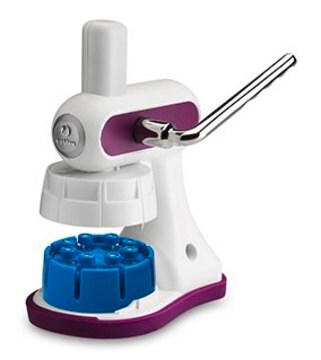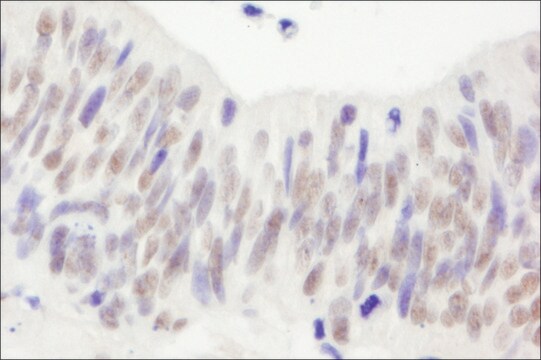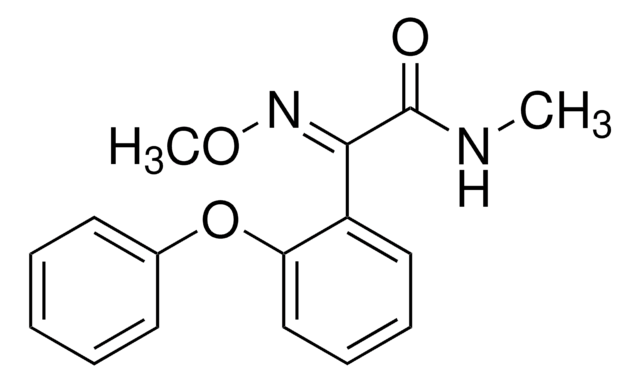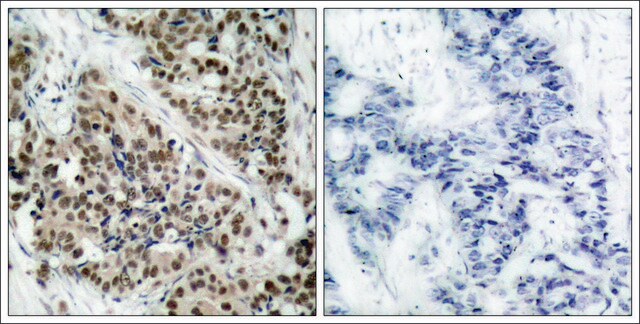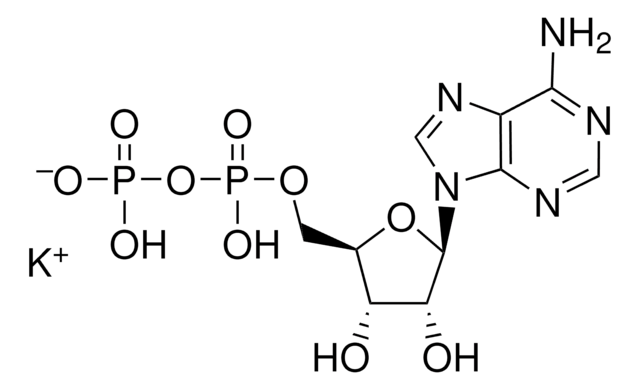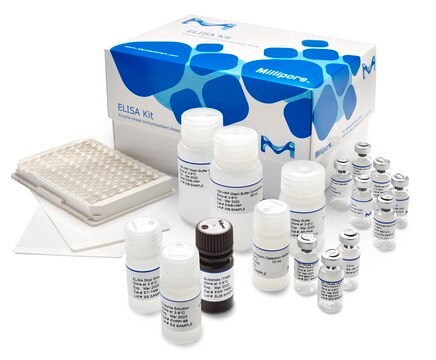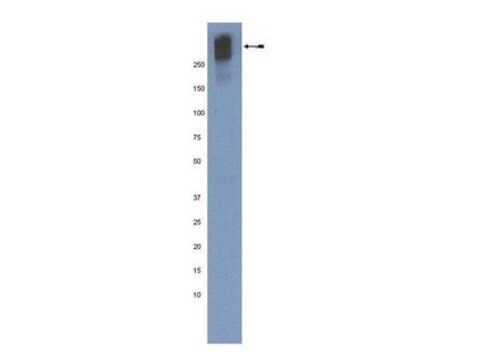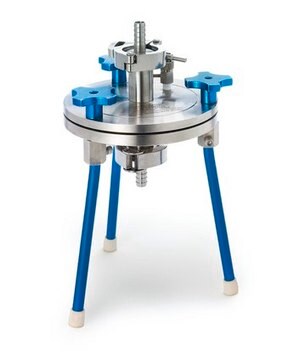MABE1878
Anti-CNOT6 Antibody, clone Y6206
About This Item
Productos recomendados
origen biológico
mouse
Nivel de calidad
conjugado
unconjugated
forma del anticuerpo
purified antibody
tipo de anticuerpo
primary antibodies, primary antibodies
clon
Y6206, monoclonal
mol peso
calculated mol wt 63.3 kDa
observed mol wt ~62 kDa
purificado por
using protein G
reactividad de especies
mouse, human
envase
antibody small pack of 100 μg
técnicas
western blot: suitable
isotipo
IgG2bκ
secuencia del epítopo
N-terminal half
Nº de acceso Protein ID
Nº de acceso UniProt
Condiciones de envío
ambient
modificación del objetivo postraduccional
unmodified
Información sobre el gen
human ... Cnot6(57472)
Categorías relacionadas
Descripción general
Especificidad
Inmunógeno
Aplicación
Evaluated by Western Blotting in HepG2 cell lysate.
Western Blotting Analysis: A 1:1,000 dilution of this antibody detected CNOT6 in HepG2 cell lysate.
Tested Applications
Western Blotting Analysis: A 1:1,000 dilution from a representative lot detected CNOT6 in lysates from Mouse embryonic stem cells and DLD-1 cells.
Western Blotting Analysis: A representative lot detected CNOT6 in Western Blotting applications (Ito-Kureha, T., et al. (2020). Nat Commun.11(1):6169; Otsuka, H., et al. (2020). Biochimie.;174:49-56; Mostafa, D., et al. (2020). RNA Biol.;17(3):403-416; Zukeran, A., et al. (2016). Biochem Biophys Res Commun. 474(2):233-239; Takahashi, A., et al. (2015). Cell Rep. 13(12):2756-67).
Note: Actual optimal working dilutions must be determined by end user as specimens, and experimental conditions may vary with the end user
Forma física
Almacenamiento y estabilidad
Otras notas
Cláusula de descargo de responsabilidad
Código de clase de almacenamiento
12 - Non Combustible Liquids
Clase de riesgo para el agua (WGK)
WGK 1
Certificados de análisis (COA)
Busque Certificados de análisis (COA) introduciendo el número de lote del producto. Los números de lote se encuentran en la etiqueta del producto después de las palabras «Lot» o «Batch»
¿Ya tiene este producto?
Encuentre la documentación para los productos que ha comprado recientemente en la Biblioteca de documentos.
Nuestro equipo de científicos tiene experiencia en todas las áreas de investigación: Ciencias de la vida, Ciencia de los materiales, Síntesis química, Cromatografía, Analítica y muchas otras.
Póngase en contacto con el Servicio técnico